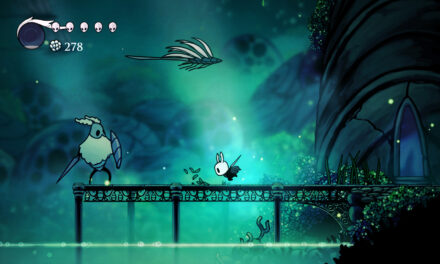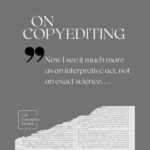
Associate Editor Lisa Low: Like many writers, I have a love-hate relationship with writing-related productivity. There have been whole months and years that I’ve gone without writing, often out of necessity—my first year of teaching elementary school, during a freelance project that grew beyond expectations, and during bad first-trimester nausea. These haven’t been the only breaks, of course; some have been more intentional than others, like breaks at the end of a project or writing challenge. But regardless of intention, I’d often feel, after an arbitrary amount of time, some amount of guilt for taking the time off.
Especially in light of the past few years of the pandemic, this led me to wonder: How do writers decide when to take an intentional break? What keeps them connected to writing, if at all? What helps them return to writing? I reached out to our staff and previous contributors for insight on their writing lives.
A few contributors described their boundaries around the writing process. “When I’m not writing, I’m hardly thinking about it at all, but when I’m writing, I’m almost always reflecting on things I’ve read or experienced,” says software engineer and miCRo contributor Lucy Zhang on the separation between writing and the rest of life. In fact, Zhang views writing and creating as a break from “slogging through meetings or sad compilers, dealing with dishes, consuming anime and trope-saturated manga/manhwa and social media”—life activities that she notes are very far removed from writing.
19.1 contributor Marjorie Celona used to say that they were always writing in their head, but after starting to have seizures last year, has since concluded, “If you’re a writer with a body in this world, you write how and when you can.” This made me think about the ways that writers, not unlike athletes, can push their bodies past breaking points. This past January, Celona wrote a total of one hour during the month. “I feel fine about this. It was a wondrous hour,” they say.
To sustain momentum during a break, such as the months-long one he’s currently in, Assistant Editor and poet Connor Yeck focuses on generating-adjacent tasks like editing. “I’ve been looking back at old poems, pieces of poems, notes, and rearranging a manuscript, all of which, after taking a long enough break, can create a ‘Whoa, who wrote this?’ feeling and make your own work seem a bit new, strange, and the tunnel vision that might’ve emerged in the thick of composing clears up.”
Turning to other interests, obsessions, and genres was helpful for 18.1 contributor Saddiq Dzukogi after the completion of his poetry collection, Your Crib, My Qibla (University of Nebraska Press, 2021). “I found solace in music and landscapes, flowers, decomposition, particularly that of trout and why their bones persist longer than flesh,” he describes. “But my life is one of such constant discovery, so I indulge in another genre—nonfiction, which I do as a mishmash of poetry, pictures and prose, almost anything that dares to come my mind—which affords me the space to have a conversation with myself away from even the prying eyes of my shadows.” This practice also helps with new fodder for poetry when he returns to it.
During breaks, Yeck also pivots to reading, both old favorites poetry-wise and genres that are fun for him—science fiction, fantasy, horror, and mystery—a strategy I also make use of, especially when feeling physically miserable. Books by stand-up comedians are my go-to, but I also gravitate toward essay collections, since prose often feels easier for me to digest than poetry. Yeck experiences a similar feeling: “The further away I read from my exact genre, the more excited I find myself to return to it in some future moment with a new batch of ideas.”
But sometimes reading itself is too hard. Although I don’t actively think about writing when I’m watching TV, for example, I like the idea of staying connected to my writing practice by reflecting on other mediums (or even just other everyday activities) in hindsight. For instance, after admiring how Schitt’s Creek creator and showrunner Dan Levy built a TV land without homophobia, I thought about ways this craft choice could be applied in writing in terms of racism. Hannah Gadsby’s stand-up special Douglas also inspired me, especially the introduction in which she mapped out her forthcoming routine, down to a preview of the ending joke. How could I use a metacognitive strategy like this, and to what effects, in my writing?
Of course, not everyone experiences these in-between times; both Zhang and Grace Q. Song, whose poem “Parasite” appears in Issue 18.2, say breaks happen occasionally for them and aren’t the norm. For Zhang, long breaks don’t feel necessary because of the built-in differences between writing and the other things she does. When life gets busy for Song, the itch to write again returns after about two weeks.
Even after a short break, in addition to practices that cultivate material before writing—as well as generative strategies once at the desk—there’s nothing like the recognition of writing as work. Song says, “Sometimes, an idea will come to me, but a lot of other times, I have to push the poem out.”











